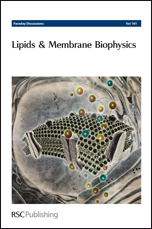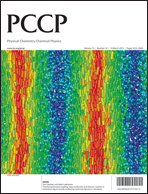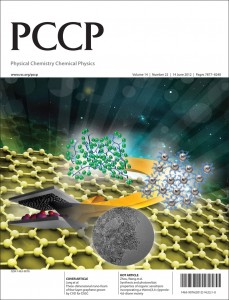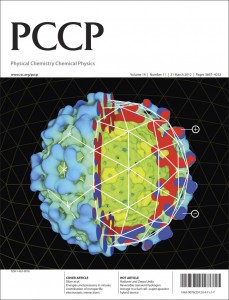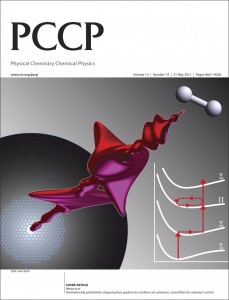
Call for oral abstracts – deadline 21 October 2013
We invite you to join us for Faraday Discussion 171, which will cover:
• Chemical reaction dynamics
• Electron dynamics in atoms, molecules and clusters
• Correlated systems, surfaces and catalysis
• Nanoscale and bio imaging
Submit your abstract today. You can find more details about submitting your abstract here
Speakers include:
- Majed Chergui, Ecole Polytechnique Fédérale de Lausanne
- Henry Chapman, Center for Free-Electron Laser Science
- Christian Bressler, European XFEL GmbH
- Robert Moshammer, Max-Planck-Institut fur Kernphysik
- Nora Berrah, Western Michigan University
- Jon Marangos, Imperial College London
- Kai Roßnagel, Institut für Experimentelle und Angewandte Physik
- Martin Wolf, Fritz-Haber-Institut der Max-Planck-Gesellschaft
- John Spence, Arizona State University
- Chris Jacobsen, Northwestern University/Argonne National Laboratory
Physical Chemistry Chemical Physics is a sister journal to Faraday Discussions. PCCP brings you content of the highest quality in physical chemistry, chemical physics and biophysical chemistry.
We invite you to submit your research to PCCP today.
Articles from PCCP in this area include:
Ultrafast fluorescence studies of dye sensitized solar cells
Olivier Bräm, Andrea Cannizzo and Majed Chergui
DOI: 10.1039/C2CP40590C, Communication
State- and conformer-selected beams of aligned and oriented molecules for ultrafast diffraction studies
Frank Filsinger, Gerard Meijer, Henrik Stapelfeldt, Henry N. Chapman and Jochen Küpper
DOI: 10.1039/C0CP01585G, Perspective
Comparison of high-order harmonic generation in uracil and thymine ablation plumes
Christopher Hutchison, Rashid A. Ganeev, Marta Castillejo, Ignacio Lopez-Quintas, Amelle Zaïr, Sébastien J. Weber, Felicity McGrath, Zara Abdelrahman, Malte Oppermann, Margarita Martin, Dang Yuan Lei, Stefan A. Maier, John W. G. Tisch and Jonathan P. Marangos
DOI: 10.1039/C3CP00004D, Paper
Studies of bimolecular reaction dynamics using pulsed high-intensity vacuum-ultraviolet lasers for photoionization detection
Daniel R. Albert and H. Floyd Davis
DOI: 10.1039/C3CP51930A, Perspective














